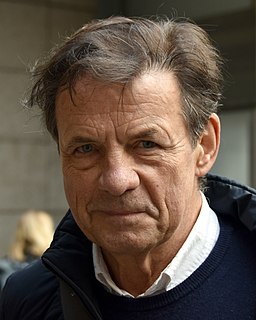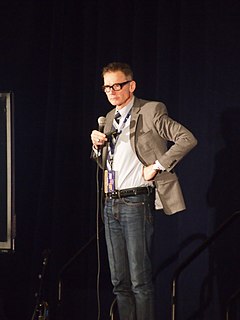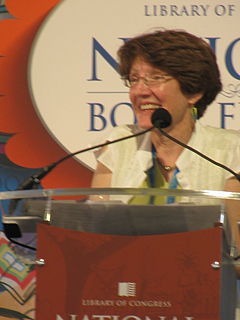A Quote by John Boyne
I don't change the language for children books. I don't make the language simpler. I use words that they might have to look up in the dictionary. The books are shorter, but there's just not that much difference other than that to be honest. And the funny thing is, I have adult writer friends [to whom I would say], "Would you think of writing a children's book?" and they go, "No, God, I wouldn't know how." They're quite intimidated by the concept of it. And when I say to children's books writers, would they write an adult book, they say no because they think they're too good for it.
Quote Topics
Adult
Because
Book
Books
Change
Children
Children Book
Children's Books
Concept
Dictionary
Difference
Don't Change
Friends
Funny
Funny Thing
Go
God
Good
Honest
How
Intimidated
Just
Know
Know How
Language
Look
Look Up
Make
Might
Much
Other
Quite
Say
Simpler
Than
They Say
Thing
Think
To Be Honest
Too
Up
Use
Whom
Words
Would
Write
Writer
Writers
Writing
Related Quotes
I've published over 100 books - and that is divided about 50/50 adult and young adult. Lately, I have been writing more YA, which is such a great genre to write it. I don't have a favourite (I usually say it's the last book I've written), but certain books do stick in the mind. My very first YA novel, The Children of Lir, will always be special to me, and, of course The Alchemyst because it was a series I'd wanted to write for ages.
There is the myth that writing books for children is easier than writing books for grownups, whereas we know that truly great books for children are works of genius, whether it's 'Alice in Wonderland' or the 'Gruffalo' or 'Northern Lights.' When it's a great book, it's a great book, whether it's for children or not.
I think the books are the books. They were conceived as books. They weren't conceived as movies. When I write scripts, that's an idea and a situation that I think is a really good idea for a movie. When I'm writing a book, I'm not thinking, "Oh, this would be a great movie." This would be a very interesting book. And I think the books are things that cannot really be adapted into another medium.
The young adult literature is relatively new - it just kind of exploded in the 2000s. When I grew up, there weren't bookstores with sections dedicated to teen lit, nor was my generation raised reading books written specifically for us. Because of that, today we still think of books for teens as children's books and so when you write a book that includes sensitive topics, it just seems even more controversial. What's troubling to me about that is these are issues adults know that teens deal with. Not writing about them makes them something we don't, or can't talk about.
People are constantly telling me, whether they are friends who feel sorry for me, because I can't find a place to live, or real estate agents, "You can't afford an apartment the size you need with this many books. Why don't you just put some of your books in storage?" And I always say the same thing: "What if I told you I had four children? Would you say, 'You just can't afford to house four children. Why don't you just put two of them in storage?'" That's how I feel.
Sometimes I read the same books over and over and over. What's great about books is that the stuff inside doesn't change. People say you can't judge a book by its cover but that's not true because it says right on the cover what's inside. And no matter how many times you read that book the words and pictures don't change. You can open and close books a million times and they stay the same. They look the same. They say the same words. The charts and pictures are the same colors. Books are not like people. Books are safe.






































